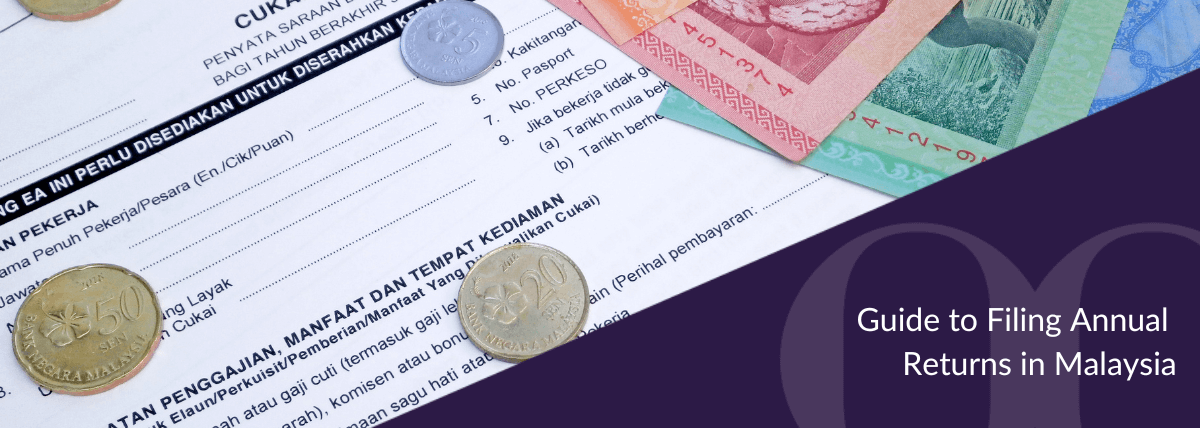How to Register a Company in Malaysia
Thinking of registering a company in Malaysia? The country’s liberal government policies and strong economic outlook make it easy to see why Malaysia ranks twelfth on the World Bank’s Ease of Doing Business scale (2020). As a result, it is a desirable choice for investors.
Only a short 45-minute flight from Singapore, Malaysia offers lower start-up costs, greater tax incentives and more extensive government support. However, the process of setting up a new office in Malaysia can appear complex to a foreign business owner.
This guide takes you step-by-step through how to open a company in Malaysia. And, most importantly, it shows you how to meet compliance requirements for a successful business venture. Read on for more insight on how to register a company in Malaysia:
Malaysian market profile
Malaysia is considered one of Southeast Asia’s most dynamic business environments. Its liberal market policies promote trade and economic development, while many government incentives encourage ongoing growth.
Some key characteristics of the Malaysian Market which make it ideal for registering a company include:
- Average monthly office rental pricing: Grade A office space in Kuala Lumpur’s new central district averages RM 10.49 per square foot (2021)
- Average fixed broadband internet download speed: 103.28 megabits per second (August 2021)
- Average mobile internet download speed: 29.14 megabits per second (August 2021)
- Gross Domestic Product US$ bn: 336.664 (2020)
- Population: 32.6 million (2020)
- Official languages: Malay, English

The benefits of setting up a company in Malaysia
Malaysia’s multicultural, multilingual society provides a skilled workforce with relatively low wage costs, which appeals to many overseas companies. The transport and telecommunications infrastructures both also operate efficiently, while the growing economy and accessible location make Malaysia a preferred choice.
Other benefits to registering a company in Malaysia include:
- Low corporate tax: For resident companies in Malaysia with under RM50 million in sales, the tax rate is only 17% on your first RM600,000. Once you earn over this limit, the rate increases to 24% for non-resident companies. To check your estimated tax rates, speak to one of our Malaysian tax specialists.
- Skilled and educated workers: Malaysia has a highly skilled workforce, over 70% of whom speak English. Malaysian locals are friendly, hospitable and eager to learn, which increases both productivity levels and customer service.
- Liberal government policies: The Malaysian government’s approach to foreign investment is proactive, welcoming new trade with a variety of industry-specific incentives. The lack of restrictions on repatriating capital, royalties, dividends or profits also encourages many multinational companies to call Malaysia home.
- Effective infrastructure: With five international airports and two international shipping ports, Malaysia is one of Asia’s busiest international hubs. Over the next few years, the Malaysian government will also invest more money into upgrading ports and building new rail links. As a result, the country will provide an efficient, high-tech transport system that enables seamless business operations, allowing an increase in foreign company interaction.
How to establish and register a company in Malaysia
01 Step 1 - Choose a company type
- Private Limited Company (Sdn Bhd): Although there are many different business entities, the only option for foreign investors registering a company in Malaysia is a Private Limited Company. This private company type is a separate legal entity, enabling it to bind contracts, purchase assets and act as its own legal entity in court.
Private Limited Companies in Malaysia can be owned by locals or foreigners, as long as at least one director has a residential address in Malaysia (see step 3). However, unlike Public Limited Companies, Private Limited Companies can only have up to fifty shareholders, and cannot offer shares to the public. To learn more, contact our specialist team.
- Public Limited Company (Berhad): Most large-scale enterprises in Malaysia are Public Limited Companies, which allows them to sell shares and generate further investment. Listing the company as public also enhances the corporate image and profile, potentially inviting new business opportunities and further expansion.
However, Public Limited Companies need to adhere to strict compliance requirements, including holding annual general meetings and audits. Additionally, to own a Public Limited Company in Malaysia, you need to be a Malaysian citizen.
- Sole Proprietorship and Partnership: This entity type is also only available to Malaysian citizens. It’s ideal for local small business owners with either a sole proprietorship or up to 20 partners.
- Limited Liability Partnership (LLP): This entity type combines the properties of a Private Limited Company and a conventional partnership. A Limited Liability Partnership is a separate legal entity from its owners, which provides additional protection for the partners’ personal assets and wealth.
Please note that to help rebuild local trade during the COVID-19 pandemic, the Malaysian government has restricted foreigners from initiating some business types. These types may include supermarkets, convenience stores, hairdressers, retail shops and more. Contact our specialist team for the most up-to-date information on foreign business restrictions.
02 Step 2 – Give your company a name
When you register a company, the name of your business can fall under two different categories:
- Personal Name: This is the name on your identity card, which does not need approval.
- Trade Name: All business names must be approved by the Registrar of Business, Companies Commission of Malaysia (SSM).
The Companies Commission will make sure your company name meets the following conditions:
- No negative connotations or undesirable names: A business name cannot breach the constitution or law, or contain any elements that are negative, vulgar, obscene or offensive.
- Correct spelling: The company name must use correct language and spelling. If the name contains a word that is not from Bahasa Malaysia or English, or that is fictitious, you must provide the meaning and/or origin of the word.
- No generic names: Your business name must have its own identity, and must not be too common. Avoid using only generic words like ‘Marketing Resources’.
- Not already registered: You cannot use a business name that has already been registered or in safekeeping. This includes changing symbols, letters or words that carry the same meaning.
View the complete list of guidelines for business name registration online, and find out if your business name is available in Malaysia before registering a company.

03 Step 3 – Set up your company structure
Next, determine your suitable business entity or company structure, ensuring you meet the following requirements for a Private Limited Company (Sdn Bhd company), as this is the only option for foreign companies:
- Director: your company will need at least one director who meets all of the following criteria:
- Must be a natural person (individual) and at least 18 years of age;
- Must be of sound mind;
- Must ordinarily reside in Malaysia, with a principal place of residence there;
- Must not be an undischarged bankrupt under the Insolvency Act 1967; and
- Must not be disqualified under the Companies Act 2016.
To satisfy your local director requirements in Malaysia, we can provide a nominee director service.
- Shareholder: you must also have at least one shareholder, who can be either a foreigner, a local or a corporate entity.
- Company secretary: you must appoint a qualified natural person living in Malaysia as your company secretary.
We provide expert company secretarial services to ensure your company meets all of its statutory obligations in Malaysia.
- Share capital: you must issue a minimum share capital of:
- RM1,000 for locally owned companies; or
- RM500,000 for foreign-owned companies.
- Registered address: your registered office must be a physical address in Malaysia. If your business does not have local office space, professional service firms like BoardRoom can provide a registered office location.
04 Step 4 – Submit your business registration application
To submit your company registration application, the owner or partner who submits it must be a Malaysian Citizen or Permanent Resident of Malaysia, aged 18 years or over. Only the owner or partner/s can apply to register a new business entity.
To help you navigate the process of registering your company in Malaysia, we have a comprehensive company setup and incorporation service with local experts.
05 Step 5 – Apply for other permits and business licences (if relevant)
Depending on your specific business operations, you may also need to apply for additional permits and business licences. Find out which permits and business licenses you could require after your Malaysian company registration.
How to successfully open a company in Malaysia
Registering your business in Malaysia may be easier than you think.
Our specialist BoardRoom team can provide expert advice and assistance whether you’re looking for information on:
- how to register an enterprise in Malaysia;
- how to open a corporate bank account;
- how to meet compliance requirements;
- how to check whether a company is legal in Malaysia; or
- how to evaluate a company for acquisition.
Other services we can provide include company set up and incorporation, corporate secretarial services, accounting and bookkeeping, payroll and more.
Speak to one of our specialists today to find out how to register your business in Malaysia.
Note: if you’re interested in more business opportunities or want more information on the business registration process in Southeast Asia, we can help. Explore our guide on how to start a business in Singapore, learn about the benefits of incorporating online there, or learn how to start a business and register a company in Hong Kong.






